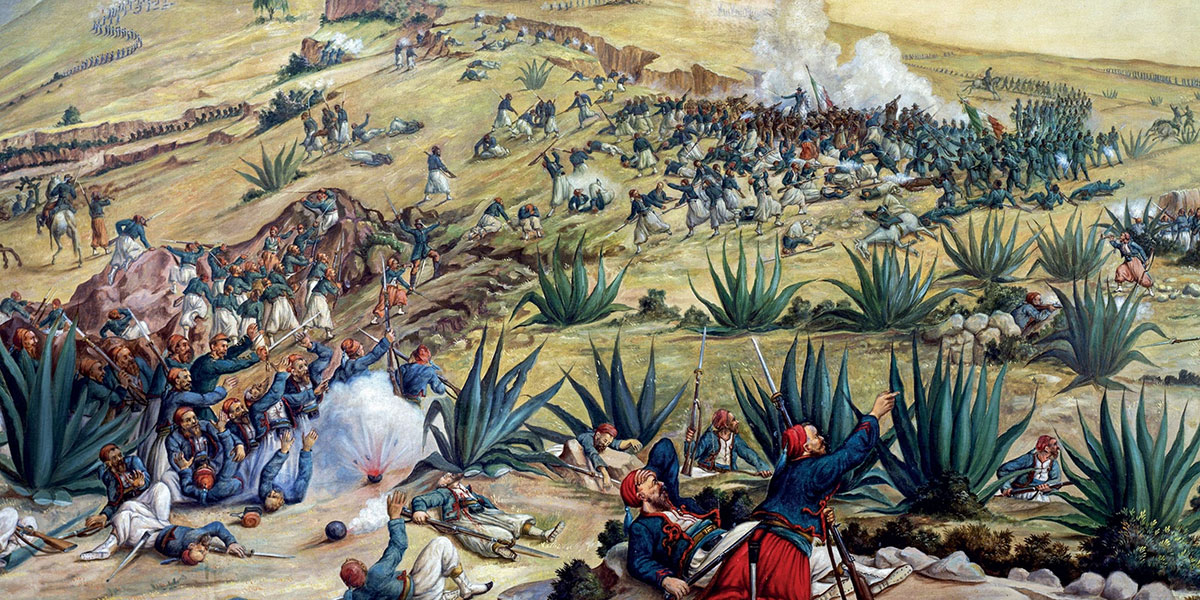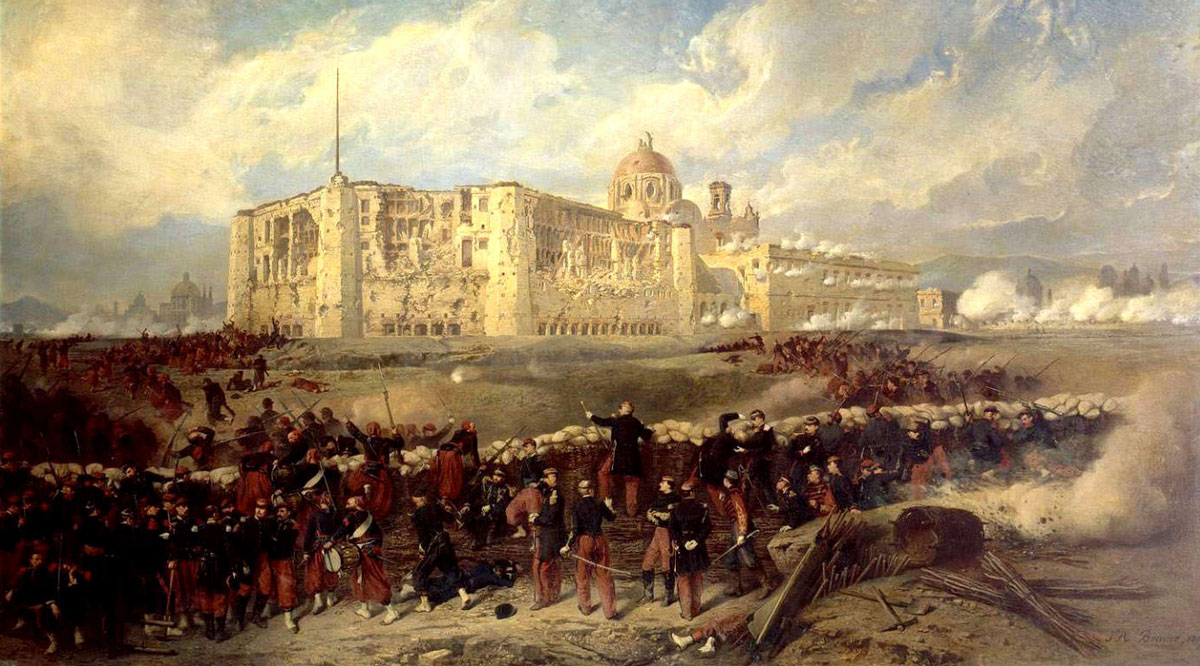Cinco de Mayo is not Mexican Independence Day, a popular misconception.
Instead, it commemorates a single battle. In 1861, Benito Juárez—a lawyer and member of the Indigenous Zapotec tribe—was elected president of Mexico. At the time, the country was in financial ruin after years of internal strife, and the new president was forced to default on debt payments to European governments.
In response, France, Britain and Spain sent naval forces to Veracruz, Mexico, demanding repayment. Britain and Spain negotiated with Mexico and withdrew their forces.
France, however, ruled by Napoleon III, decided to use the opportunity to carve an empire out of Mexican territory. Late in 1861, a well-armed French fleet stormed Veracruz, landing a large force of troops and driving President Juárez and his government into retreat.

The Battle of Puebla
Certain that success would come swiftly, 6,000 French troops under General Charles Latrille de Lorencez set out to attack Puebla de Los Angeles, a small town in east-central Mexico. From his new headquarters in the north, Juárez rounded up a ragtag force of 2,000 loyal men—many of them either Indigenous Mexicans or of mixed ancestry—and sent them to Puebla.
The vastly outnumbered and poorly supplied Mexicans, led by Texas-born General Ignacio Zaragoza, fortified the town and prepared for the French assault. On May 5, 1862, Lorencez gathered his army—supported by heavy artillery—before the city of Puebla and led an assault.

How Long Did the Battle of Puebla Last?
The battle lasted from daybreak to early evening, and when the French finally retreated they had lost nearly 500 soldiers. Fewer than 100 Mexicans had been killed in the clash.
Although not a major strategic win in the overall war against the French, Zaragoza’s success at the Battle of Puebla on May 5 represented a great symbolic victory for the Mexican government and bolstered the resistance movement. In 1867—thanks in part to military support and political pressure from the United States, which was finally in a position to aid its besieged neighbor after the end of the Civil War—France finally withdrew.
The same year, Austrian Archduke Ferdinand Maximilian, who had been installed as emperor of Mexico in 1864 by Napoleon, was captured and executed by Juárez’s forces. Puebla de Los Angeles was renamed for General Zaragoza, who died of typhoid fever months after his historic triumph there.
Significance
The Battle of Puebla was significant, both nationally and internationally, for several reasons.
First, “This battle was significant in that the 2,000 Mexican soldiers were greatly outnumbered by the well-equipped French army of 6,000 that had not been defeated for almost 50 years.”
Second, since the overall failed French intervention, some have argued that no country in the Americas has subsequently been invaded by any other military force from Europe.
Historian Justo Sierra has suggested in his Political Evolution of the Mexican People that, had Mexico not defeated the French in Puebla on May 5, 1862, France would have gone to the aid of the Confederate States of America in the American Civil War and the United States’ destiny could have been different.




